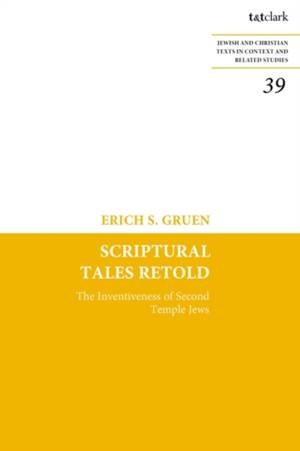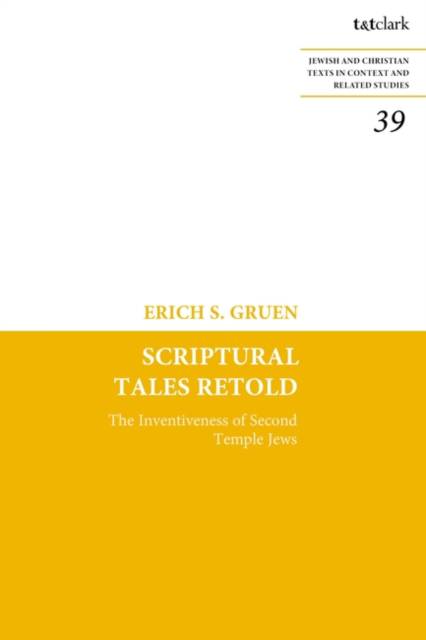
- Afhalen na 1 uur in een winkel met voorraad
- Gratis thuislevering in België vanaf € 30
- Ruim aanbod met 7 miljoen producten
- Afhalen na 1 uur in een winkel met voorraad
- Gratis thuislevering in België vanaf € 30
- Ruim aanbod met 7 miljoen producten
Zoeken
€ 203,95
+ 407 punten
Uitvoering
Omschrijving
Erich S. Gruen investigates a remarkable phenomenon in religious and literary history: the freedom with which Jewish writers in antiquity retold and recast, sometimes distorted or bypassed, biblical narratives that ostensibly had the status of sacred texts. Gruen asks the question of what prompted such tampering with tales that carried divine authority, and what implications this widespread practice of liberal revising had for attitudes toward the sacrality of the scriptures in general.
Gruen focuses upon writings of the Second Temple period, an era of the deep integration of Jewish history and the Greco-Roman world. Gruen brings to the task the training of a classicist and ancient historian rather than that of a biblical textual critic or a rabbinics scholar, not pursuing the commentaries of the later rabbis with their very different approaches, methods, and goals. As such, Gruen's emphasis rests upon narrative rather than legal matters, the haggadic rather than the halakhic. The former lends itself most readily to the creative instincts of the re-tellers.Specificaties
Betrokkenen
- Auteur(s):
- Uitgeverij:
Inhoud
- Aantal bladzijden:
- 184
- Taal:
- Engels
- Reeks:
Eigenschappen
- Productcode (EAN):
- 9780567715173
- Verschijningsdatum:
- 22/08/2024
- Uitvoering:
- Hardcover
- Formaat:
- Genaaid
- Afmetingen:
- 156 mm x 234 mm
- Gewicht:
- 435 g

Alleen bij Standaard Boekhandel
+ 407 punten op je klantenkaart van Standaard Boekhandel
Beoordelingen
We publiceren alleen reviews die voldoen aan de voorwaarden voor reviews. Bekijk onze voorwaarden voor reviews.








